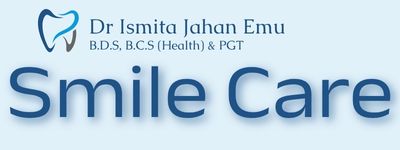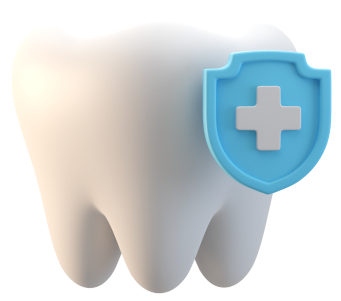Maintaining a bright, healthy smile starts with one simple but powerful habit: brushing your teeth properly every day. While it may seem basic, many people overlook the importance of correct brushing technique, frequency, and the tools used. In this comprehensive guide, we’ll cover everything you need to know about daily brushing — why it matters, how to do it right, and how it impacts your overall dental health.
Why Brushing Twice a Day Is Essential
Brushing your teeth twice a day — once in the morning and once before bed — is recommended by dental professionals worldwide. Here’s why:
- Removes Plaque: Brushing helps remove plaque, a sticky film of bacteria that builds up on your teeth and gums. Plaque is the main cause of cavities and gum disease.
- Prevents Bad Breath: Removing food particles and bacteria from your mouth keeps your breath fresh.
- Protects Against Gum Disease: Consistent brushing helps prevent gingivitis, the early stage of gum disease.
- Prevents Tooth Decay: Fluoride toothpaste strengthens enamel and helps reverse early signs of tooth decay.
Neglecting to brush regularly can lead to a range of oral health problems, including cavities, gum inflammation, and even tooth loss in severe cases.
The Ideal Brushing Technique
Many people brush their teeth daily but don’t use the correct technique, which reduces the effectiveness of brushing. Follow these steps to ensure your teeth get the best care:
- Use a Soft-Bristled Toothbrush: A soft toothbrush is gentle on your gums and enamel. Hard bristles can cause damage over time.
- Apply a Pea-Sized Amount of Fluoride Toothpaste: Fluoride helps protect your teeth from decay and strengthens enamel.
- Hold Your Brush at a 45-Degree Angle: Position the brush where your teeth and gums meet, and gently move it in small circular motions.
- Brush All Surfaces: Focus on the outer, inner, and chewing surfaces of each tooth. Don’t forget your tongue — it harbors bacteria too.
- Brush for Two Minutes: Spend at least 30 seconds in each quadrant of your mouth. Consider using a timer or an electric toothbrush with a built-in timer.
The market is filled with different types of toothbrushes — manual, electric, soft, medium, and hard bristles. Here’s what you should consider:
- Soft Bristles Are Best: They clean effectively without damaging the gums or enamel.
- Manual vs. Electric: Both are effective if used correctly. Electric brushes can be helpful for people with limited mobility or those who need a bit more motivation to brush properly.
- Brush Head Size: Choose a brush head that fits comfortably in your mouth and can reach all areas easily.
- Replace Every 3 Months: A worn-out toothbrush won’t clean your teeth properly and can harbor bacteria.
Fluoride Toothpaste: A Must-Have
Fluoride is a natural mineral that plays a crucial role in preventing tooth decay. Using fluoride toothpaste twice a day helps:
- Strengthen tooth enamel
- Reverse early signs of cavities
- Reduce harmful bacteria in your mouth
Make sure your toothpaste carries the ADA (American Dental Association) or your local dental authority’s seal of approval.
Brushing Before Bed: Don’t Skip It
Even if you’re tired, brushing before bed is non-negotiable. During sleep, saliva production slows down, and without brushing, the bacteria in your mouth can flourish overnight. Brushing removes food particles and plaque buildup from the day and helps prevent overnight decay.
Common Brushing Mistakes to Avoid
Even daily brushers can make errors that reduce the effectiveness of their oral hygiene. Here are common mistakes:
- Brushing Too Hard: This can wear down enamel and irritate gums.
- Using the Wrong Brush: Medium or hard bristles can damage teeth and gums.
- Brushing Too Quickly: Rushing through your routine leads to missed spots.
- Not Replacing Your Toothbrush: Old brushes are less effective and can carry bacteria.
- Skipping the Tongue: Bacteria can linger on the tongue and cause bad breath.
Complement Your Brushing Routine
Brushing is just one part of a complete oral hygiene routine. To maximize your dental health, consider adding:
- Flossing Daily: Cleans between teeth where brushes can’t reach.
- Mouthwash: Kills bacteria and freshens breath.
- Regular Dental Check-Ups: Visit your dentist every 6 months for a professional cleaning and check-up.
- Healthy Diet: Limit sugary foods and drinks, and eat plenty of fresh fruits and vegetables.
Final Thoughts
Brushing your teeth twice a day for two minutes with a soft-bristled toothbrush may sound simple, but it’s the foundation of good oral health. Done correctly, this small daily habit can prevent cavities, gum disease, bad breath, and costly dental procedures. Make brushing a non-negotiable part of your daily routine, and your teeth will thank you with a healthy, confident smile.
Remember: It’s not just how often you brush, but how well you brush that makes all the difference.

